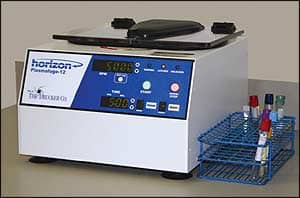The personalized medicine company DxS has signed a non-exclusive global licensing agreement with the Wellcome Trust. DxS will provide a research test for use in clinical trials to detect the presence of the V600E B-RAF mutation, which is found in melanomas, lung and thyroid cancers.
The V600E B-RAF mutation was identified by scientists at the Wellcome Trust and can be found in around 36% to 40% of skin and thyroid cancers and up to 13% of cancers in the large intestine.
Researchers will use the test to determine a patient’s cancer mutation status, which may predict how they respond to cancer therapies. If clinical trials are successful, this could lead to a companion diagnostics to predict response for novel cancer therapies for skin, thyroid and large intestine cancers.
“With many novel drugs in development for skin, thyroid and colon cancer the potential for this assay is enormous. Through this licensing agreement, we plan to expand the range of biomarker tests to our customers, aiding the treatment of a number of types of cancer,” said DxS CEO Dr Stephen Little.
Glenn Wells, Business Development Manager at The Wellcome Trust added: “We believe the identification of the B-RAF mutation could have considerable implications for the way in which treatment of melanomas, lung and thyroid cancers are handled, and are extremely pleased to have reached this agreement with DxS to allow further research and clinical trials to be undertaken with this assay.”
Using their real-time PCR technology Scorpions®, DxS has developed a highly sensitive and selective test able to detect mutations at very low levels, and can be performed in less than three hours.
This deal builds on news earlier this year, which saw DxS chosen to supply the K-RAS companion diagnostic for Amgen’s colorectal cancer therapy, Vectibix, and a global distribution deal with Roche Diagnostics.



